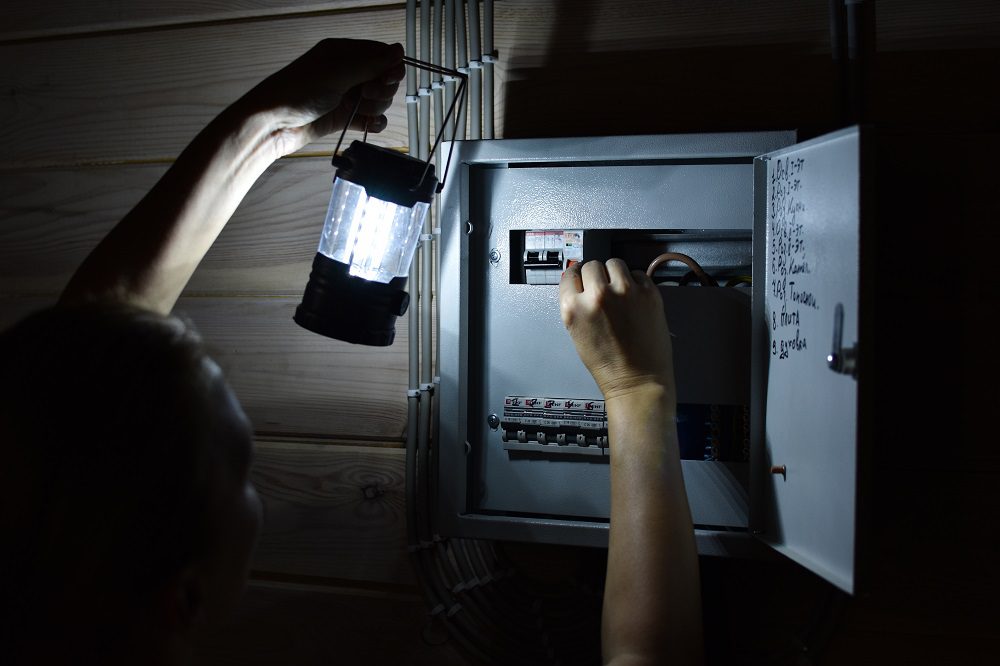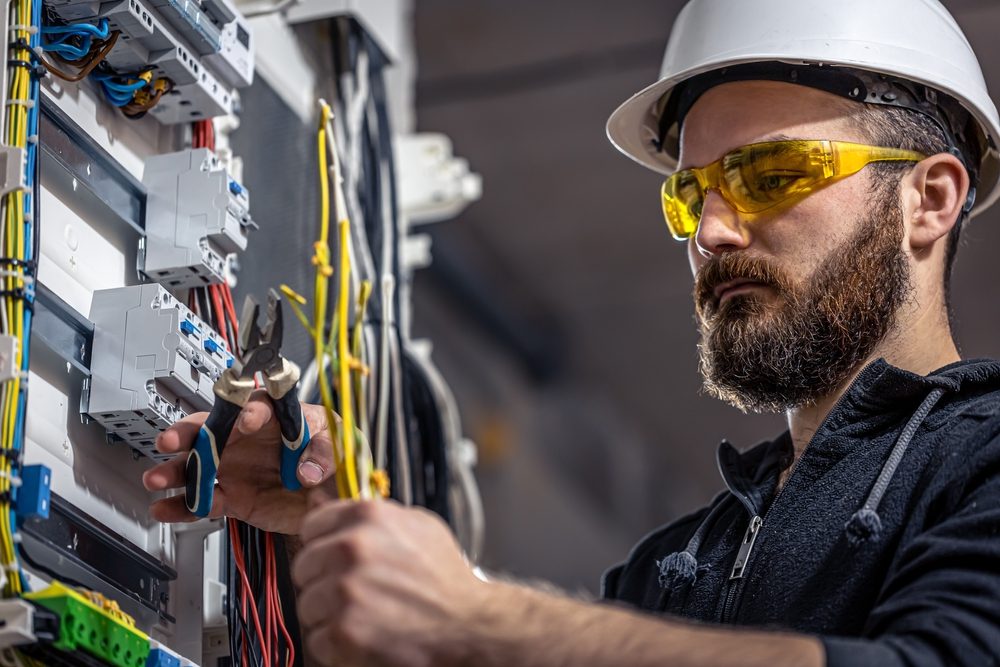
How to Protect Your Home From Wiring-Related Fire Risks
Electrical fires often start quietly. A loose backstabbed outlet warms up under load. An overloaded power strip feeds a space heater and a vacuum on the same circuit. A brittle attic splice fails during a summer heat wave. In Charlotte, older homes in neighborhoods like Plaza Midwood, Dilworth, and Wilmore have charm, but many still rely on aging conductors and outdated protection. This guide explains how to spot risk, what to do about it, and when to call an electrical wireman. It also outlines realistic expectations for electrical wiring Charlotte NC cost and how Ewing Electric Co. handles residential electrical wiring Charlotte NC with safety, code compliance, and clean workmanship.

Why wiring fires happen
Heat and arcing cause most wiring-related fires. Heat builds from high resistance at loose terminations, corroded connections, or undersized conductors. Arcing occurs when a conductor breaks contact and electricity jumps a gap, producing intense, localized heat. In the field, the triggers repeat: overloaded circuits, aluminum branch circuits from the late 1960s to mid-1970s, deteriorated cloth or rubber insulation, DIY splices without boxes, and space heaters on old receptacles.
In Charlotte, extreme summer attic temperatures worsen weak connections. Winter adds demand from portable heaters, holiday lighting, and block heaters in garages. Homes that started as 60-amp or 100-amp service and have since added EV chargers, hot tubs, or dual-fuel HVAC systems often push branch circuits beyond their original purpose.
Early warning signs a homeowner can catch
Most dangerous failures leave a trail. A homeowner does not need instruments to catch the common ones. Signs include outlets or switches that feel warm, repeated breaker trips on the same circuit, buzzing at a device under load, lights that dim when a microwave starts, a burning or fishy odor near a receptacle, and discolored or brittle outlet faces. In older houses, two-prong receptacles, mixed device styles, or random blank plates often signal past patchwork.
A brief anecdote from recent work in Madison Park: a homeowner called for “lights flickering.” The issue was not the utility feed. A loose stab connection on a living room receptacle fed half the room. The receptacle tested fine at rest, but a vacuum and space heater together caused heat damage that darkened the back of the device. A $4 part caused a hot spot that could have led to ignition. The fix involved re-terminating with screw lugs and pigtailing downstream conductors in a larger box.
Room-by-room risks in Charlotte homes
Kitchens pack high-load appliances into small spaces. Countertop circuits need GFCI and AFCI protection, 20-amp capacity, and proper splits. Microwaves, air fryers, and espresso machines often end up on the same circuit as lighting, which is a recipe for nuisance trips and overheated terminations.

Laundry rooms demand a electrical wiring near me dedicated 20-amp circuit for modern washers and a 240-volt circuit for dryers. Flexible metal dryer ducts pushed too far behind units can crush, raise heat, and increase ignition risk from lint.
Bedrooms should have AFCI protection and solid wiring in back-to-back receptacles. Backstabbed connections in older installs often loosen over time. With space heaters common in older homes with drafty windows, receptacles and cords see sustained load they were never intended for.
Attics and crawlspaces hide splices, open junctions, and knob-and-tube remnants in houses from the 1930s to 1950s. Rodent damage to NM cable appears often in crawlspaces across Charlotte’s older neighborhoods.
Garages and exterior circuits need GFCI protection and weather-resistant devices. Extension cords used as permanent wiring pose fire and shock hazards. Space heaters and power tools on the same 15-amp circuit push limits fast.
Practical steps homeowners can take today
A homeowner can reduce risk with simple actions while leaving live-circuit work to an electrical wireman.
- Unplug space heaters from power strips and plug them into dedicated receptacles. Keep cords visible and flat, not under rugs.
- Retire multi-outlet adapters. Use listed surge strips for electronics and avoid daisy-chaining.
- Test GFCI and AFCI devices monthly with the built-in test buttons. Replace any that fail to reset.
- Label the breaker panel clearly. If a breaker trips, know which rooms or devices caused it and call for service if the trip repeats.
- Replace discolored or cracked receptacle and switch plates promptly. Heat discoloration is a warning, not a cosmetic flaw.
When to call for electrical wiring services
There is a line between maintenance and risk. If any of the following appear, request an electrical wiring repair service:
- Breakers that trip under normal use once reset properly.
- Aluminum branch wiring on 15- or 20-amp circuits.
- Two-prong receptacles without grounding in living spaces.
- Open splices in attics or crawlspaces, or tape-wrapped wire bundles without boxes.
- Evidence of rodents chewing insulation.
Ewing Electric Co. fields these calls daily. A typical diagnostic visit in Charlotte includes thermal imaging on suspect circuits, torque checks on panel terminations, spot voltage-drop testing under load, and inspection of high-use receptacles in kitchens and living rooms. The team documents findings with photos so the homeowner sees exactly what was discovered.
Repair, replace, or rewire: choosing the right fix
Not every issue calls for a full rewire. A loose device, an undersized box, or a bad splice often resolves with targeted repair. Replacement makes sense when circuits are safe but devices are outdated; for example, swapping to tamper-resistant, AFCI/GFCI combination receptacles in kitchens and laundry areas.
Rewiring becomes the best path when insulation is brittle, aluminum branch circuits are widespread, or circuits are miswired across rooms in a way that affects safety or future upgrades. For homes in Myers Park or Elizabeth with plaster walls, a well-planned rewire uses strategic fishing to limit patching. In 1960s and 1970s builds with attic access, rewiring can proceed with minimal disruption and faster timelines.
For those searching “rewiring Charlotte NC,” it usually involves a panel evaluation, arc-fault protection upgrades, dedicated circuits for appliances, and grounding improvements. The installer should pull permits with Charlotte-Mecklenburg and coordinate inspections.
AFCI, GFCI, and surge protection: what actually helps
AFCI devices detect arcing faults that cause many fires in bedrooms and living areas. GFCI devices protect from shock in wet zones such as kitchens, baths, garages, and outdoor circuits. Combination breakers in the panel provide broad protection and clean up mixed boxes. Whole-home surge protection at the service panel defends electronics and prevents nuisance trips following lightning activity common in summer storms across Mecklenburg County.
From field experience, AFCI nuisance trips usually point to underlying issues: loose terminations, damaged cords, or old motors. Fix the cause rather than bypassing the protection.
Understanding electrical wiring Charlotte NC cost
Pricing depends on scope, access, finishes, and permit requirements. Ranges below reflect typical Charlotte projects and assume code-compliant materials and permits:
- Diagnostic and minor repairs: $150 to $450 for a service call that includes testing, tightening, and replacing a failed device or two.
- Circuit additions for appliances or EV chargers: $350 to $1,200 depending on run length, attic or crawlspace access, and AFCI/GFCI requirements.
- Partial rewiring of key areas (kitchen, laundry, living room): $2,000 to $6,000, influenced by wall type and need for patching.
- Whole-home rewiring: $8,000 to $25,000+ depending on square footage, story count, plaster versus drywall, and level of finish work. Historic homes in Fourth Ward or Dilworth usually land higher due to plaster and trim preservation.
- Panel upgrades with whole-home surge: $1,600 to $3,500 depending on service size and meter location.
An on-site visit provides the most accurate number. Ewing Electric Co. documents conditions, maps circuits, and provides a line-by-line scope so homeowners can compare options.
Aluminum wiring: repair options that pass inspection
Many Charlotte homes built between 1965 and 1975 used aluminum branch wiring. Aluminum can be safe if connections are managed correctly, but age and incompatible terminations raise risk. Proven remedies include COPALUM or equivalent crimp connections and AlumiConn pigtailing at devices, combined with CO/ALR-rated receptacles where appropriate. Wholesale rewiring remains the gold standard during major renovations, but pigtailing brings risk down significantly when a full rewire is not planned.
DIY pitfalls that start fires
Two patterns cause trouble after well-meaning DIY work. First, backstabbing receptacles with two high-load devices downstream leads to loose connections and heat. Side-screw terminations with proper torque and pigtails tend to hold up. Second, putting multiple splices into undersized boxes creates crowding and poor heat dissipation. Box fill calculations matter. The safest path is to schedule an electrical wiring repair service for anything beyond replacing a faceplate or a like-for-like device.

Seasonal habits that reduce risk
Charlotte’s weather swings mean different loads across the year. Before summer, check attic junctions, secure any hanging cables, and clear insulation from around recessed lights not rated for insulation contact. Before winter, avoid running space heaters on extension cords, and give each heater its own dedicated receptacle. Holiday lights belong on listed outdoor GFCI-protected circuits, with LED strings that draw less current.
How Ewing Electric Co. protects your home
Ewing Electric Co. specializes in residential electrical wiring Charlotte NC. The team handles diagnostics, targeted repairs, and full rewires with clean, methodical work. Typical service includes code-compliant labeling, AFCI/GFCI upgrades, quality devices with screw-lug terminations, and thorough testing under load. The company’s electricians wipe down work areas, patch small wall openings where feasible, and coordinate inspections so the process runs smoothly.
Homeowners searching for electrical wiring near me or electrical wiring services in Charlotte can expect clear communication on scope and price, photos of all hidden issues, and options that consider both safety and budget. That approach makes it easier to decide between repair and rewire with confidence.
Service areas and scheduling
Ewing Electric Co. serves Charlotte, Matthews, Mint Hill, Pineville, Huntersville, Cornelius, Davidson, Belmont, and Fort Mill. Projects in NoDa, South End, Steele Creek, Ballantyne, and University City are part of the daily route. Same-week appointments are often available for urgent issues like repeated breaker trips or burning odors.
To request a quote, share the age of the home, any known upgrades, and symptoms you see. Photos of the panel, problem devices, and attic or crawlspace access help the team estimate faster.
Ready to reduce wiring fire risk?
If any of the warning signs match your home, do not wait for another trip or flicker. Book an inspection with Ewing Electric Co. An experienced electrical wireman will test, document, and fix the issues that raise fire risk. Whether it is a quick repair, a few new dedicated circuits, or a full rewiring Charlotte NC homeowners can trust, the team will deliver safe, orderly work that respects your home and your time.
Ewing Electric Co provides dependable residential and commercial electrical services in Charlotte, NC. Family-owned for over 35 years, we handle electrical panel upgrades, EV charger installation, generator installation, whole-home rewiring, and 24/7 emergency repairs. Our licensed electricians deliver code-compliant, energy-efficient solutions with honest pricing and careful workmanship. From quick home fixes to full commercial installations, we’re known for reliable service done right the first time. Proudly serving Charlotte, Matthews, Mint Hill, and nearby communities. Ewing Electric Co
7316 Wallace Rd STE D Phone: (704) 804-3320 Website:
https://ewingelectricco.com/ |
Electric Company in Charlotte
Social:
Facebook |
Instagram |
Twitter |
LinkedIn |
Yelp |
Angi |
BBB
Map: View on Google Maps
Charlotte,
NC
28212,
USA